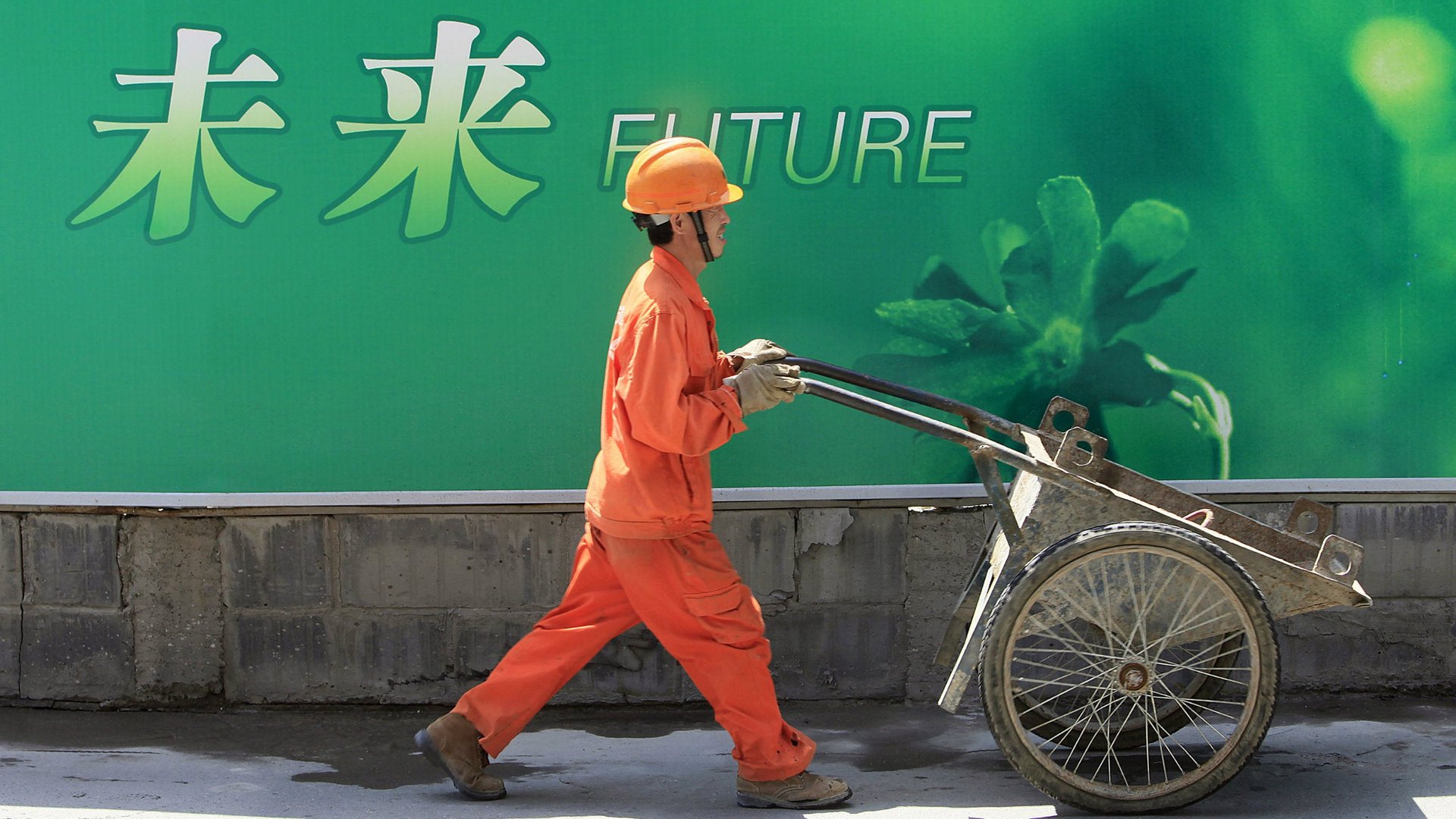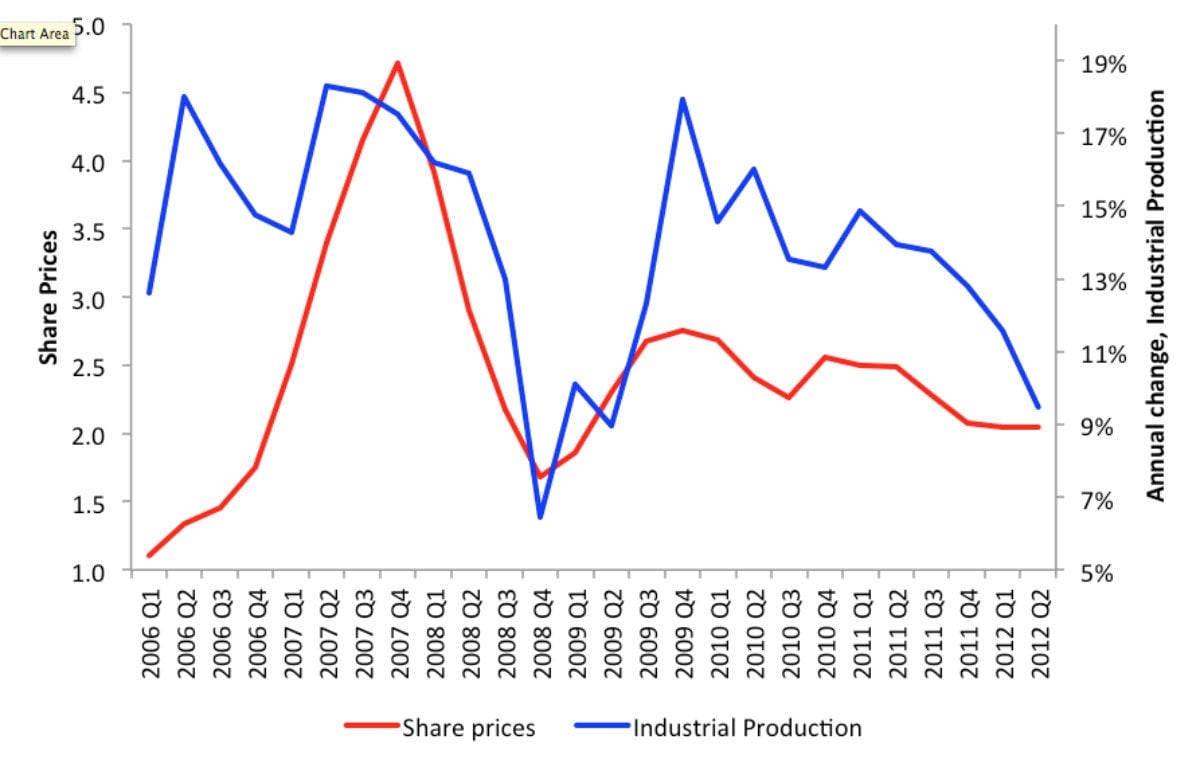Close but no cigar, Karl Marx: capitalism is still kicking
The coming political transition in China will not be an ordinary affair. Seven of the nine members of the all-important Chinese Politburo Standing Committee, including the current Paramount Leader Hu Jintao, will be replaced. Furthermore, the ongoing tensions between the orthodox communists and the reformers that have been managing China for more than 30 years are likely to resurface to give shape to the results.


The coming political transition in China will not be an ordinary affair. Seven of the nine members of the all-important Chinese Politburo Standing Committee, including the current Paramount Leader Hu Jintao, will be replaced. Furthermore, the ongoing tensions between the orthodox communists and the reformers that have been managing China for more than 30 years are likely to resurface to give shape to the results.
The ideological differences emerging in China and across the globe force the question: Was Karl Marx right?
The world of today presents an uncanny similarity to that which led Marx to announce the imminent collapse of capitalism about 150 years ago. He identified two harbingers of such collapse: the sharp concentration in the distribution of income that accompanied the early stages of the Industrial Revolution and the financial crises that with almost predictable regularity devastated the economies of the newly industrializing countries. These problems were there until the end of World War II and then disappeared. Right after the Soviet Union collapsed, the world economy started to show the same symptoms anew. And now they are threatening the capitalist economy that is developing beneath the communist political regime of China.
As shown below, inequality has been increasing ever since the 1980s. Since then, China has gone from being one of the most equalitarian societies in the world to a level of inequality that puts it almost at a par with Latin America, one of the least equalitarian regions in the world. This trend has raised serious criticisms from the orthodox and even from the not-so-orthodox communists.

Up to now, these criticisms had been overshadowed by the rising income per capita, also visible in the same figure. It is easy to visualize why the spectacular growth of income per capita should be accompanied by an increase in inequality. In the old communist China, everybody was equally poor. With the liberalization of the economy that started in the 1980s, many of its people turned entrepreneurs and became rich while creating better jobs for their former comrades. Growing inequality led to higher incomes and vice versa.
Now, however, the rate of growth of the economy is slowing down. As shown below, the rate of growth of industrial production has been declining fast since the end of 2009. The government remains optimistic, at least publicly, but many observers believe that the country may be heading for a recession. Moreover, the prices of equity shares, far from increasing, have fallen 26% from their December 2009 local peak, and 57% from their pre-crisis peak in December 2007. The large stocks of unsold real estate projects raise concerns about the possibility of a crisis similar to that of 2008 in the United States.

The prospect of increasing inequality with a serious recession and even a financial crisis looming in the near future would help the cause of the orthodox communists—particularly because it is not limited to China. And this would suggest that Marx was right. The era of stable capitalism, mostly confined to the second half of the 20th century, would have been just a fleeting stage in a process that inexorably leads to instability and growing exploitation, and, eventually, to a collapse in favor of Communism.
Yet, if the plagues identified by Marx were endemic to capitalism, the Communist regimes should be thriving. However, those regimes disappeared two decades ago. The only important Marxist regime still in place, China, is Marxist only in terms of being under the absolute political control of a group of cronies called the Communist Party. The economy is mostly capitalistic, particularly the part of it that has grown fast in the last few decades. Thus, Marx’s invention was more vulnerable than the capitalism he thought it would permanently replace.
Two mistakes led Marx to this sad outcome. First, the problems he attributed to capitalism were in fact the symptoms of the deep economic transformation that was taking place at the time—the Industrial Revolution. Profound technological advances, while opening the road for a better future in the long run, are terribly disruptive in the short term. They render obsolete the capital accumulated in physical assets, in human knowledge and skills, and, even more fundamentally, in the shape of the institutions linking together the fabric of society. People who thought they had their future assured suddenly find that their skills have been turned obsolete by the new technologies or by the new styles of life derived from them. Activities that had been for decades the mainstay of an economy suddenly become unprofitable. This brings about all kinds of economic and social disruption, including unemployment, negative turns in the distribution of income, bankruptcies, frequent financial crises, and depression.
Second, Marx did not realize that flexibility becomes the best response when momentous social changes are taking place, and that his invention (what we call the communist regimes, which he called the dictatorship of the proletariat), was extremely rigid because it concentrated all economic decisions in the government. He did not see that capitalism, with its decentralized organization, with its daily take of changes can adapt to deep transformations much faster than rigid regimes controlled by the state. The latter resisted domestic change until they broke under the sway of change in the world around them, leading their societies into long periods of chaos and then into even more rigid tyrannies brought about in bloody revolutions.
The countries whose governments intervened in the economy when the Industrial Revolution started—among them France, Germany and Russia—were the ones that exploded in violent political revolutions and went into cold-blooded destructive regimes that stopped development for generations. The system that Marx directly promoted, Communism, and that which emerged from it like an image in the mirror, Nazism, were born in the midst of destructive fights and went ahead to establish totalitarian regimes that resembled, in a worse version, the rigid regimes they replaced.
It was also because of this problem, their rigidity, that Marx’s creations collapsed when a technological revolution exploded in the late 20th century. This new revolution has been set in motion by connectivity (the power to manage complex tasks from afar in real time), an ability that the combination of computers, telecommunications and fast means of transportation has made possible. We know it is a revolution because it is changing the direction of progress. Rather than multiplying the power of the muscle, it aims at multiplying the power of the mind—individually and through the immediate association with other minds across the world. This shifted the direction of progress into a new dimension in which value added increasingly depends on knowledge and the capacity to coordinate things at a distance. China benefitted from this revolution by integrating itself into the new global production networks. China could not be what it is today without globalization. But, of course, the transition to this new world is disrupting what we have today in terms of skills, investments, ways of life, and even some of the basic institutions that give shape to our social order. This is what is causing the current turmoil, not only in China but elsewhere as well.
The trend in income distribution, the possibility of recessions and the associated financial crises are not the result of capitalism per se, but, rather, the inevitable consequences of the social transformations associated with the progress triggered by capitalism. Trying to revive the old communist state’s control of the economy to counter these trends would only introduce a fatal rigidity in the Chinese society, which in turn would stop progress and lead to grave political problems. The problems of the transformation can only be resolved by accelerating the speed of change, not by stopping it.
It is perhaps because of this that, while the communist verbiage is still present in the Chinese congress documents, the mentions of Mao and Marx are less and less frequent. Marx is just fading away.